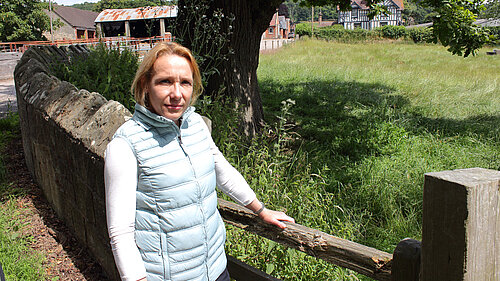Rural areas being left behind by Labour transport policies

Helen Morgan warned that poor public transport links are holding back the economy and “driving deep and fundamental inequality” as she urged the Labour government to “transform opportunities” for people in rural areas.
The North Shropshire MP was speaking during a debate on the Government’s Bus Services (No. 2) Bill – which is called ‘Number 2’ because of Helen’s original Bus Services Bill which would have legislated for better services linking market towns and villages.
The Government Bill will allow local councils to create their own bus companies and franchise their own services, rather than having to rely on routes created by private companies as is currently the case.
Helen told the Commons that she supports the principles of the Bill but has “real concerns about the ability of rural local authorities to find the funding to drive the meaningful change we so need.”
Shropshire has lost 63% of its bus service miles since 2015, compare with an average in England of a 19% reduction.
In November the Government allocated £1 billion of funding for buses but Shropshire Council received just £1.4 million in capital funding and £2.5 million in revenue funding for this financial year. That was the 53rd lowest of 73 allocations despite Shropshire being one of the worst-served counties in the country.
It also failed to account for Shropshire Council’s Bus Service Improvement Plan, which outlined the need for £73.5 million of bus funding across three years to bring the county’s bus network to an acceptable standard and was supported by councillors from all parties.
Helen made it clear that the Government’s plans focus on large urban towns and cities at the expense of rural areas like Shropshire.
The MP said, “The Government who promised a new formula based on need, deprivation and bus mileage to end the postcode lottery have so far made it abundantly clear that living in a rural area means less money, less public services and less opportunity.”
She added, “I support the Bill’s aims, and I can see its success in cities such as London and Greater Manchester, but it is essential that rural areas are not left behind and crippled by the cost of delivering social care over a large geographical area, as they have been by previous Administrations.
“Buses are the best way to reduce inequality for people in rural areas and, critically, to unlock the economic growth they can offer. I hope the Minister will listen and work with his colleagues in the Treasury to help transform the opportunities for people in rural areas.”
